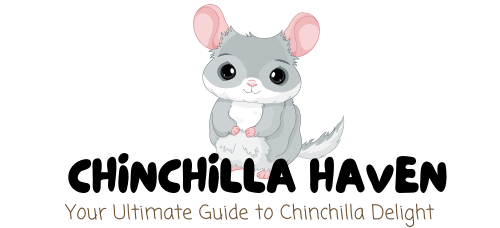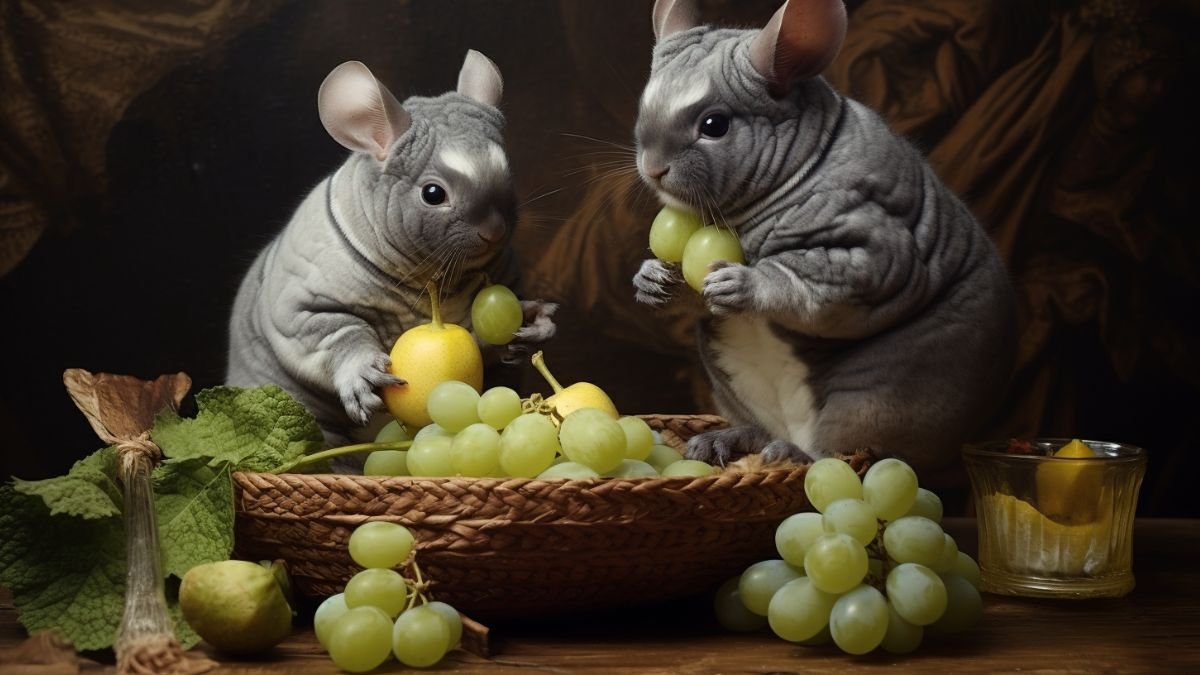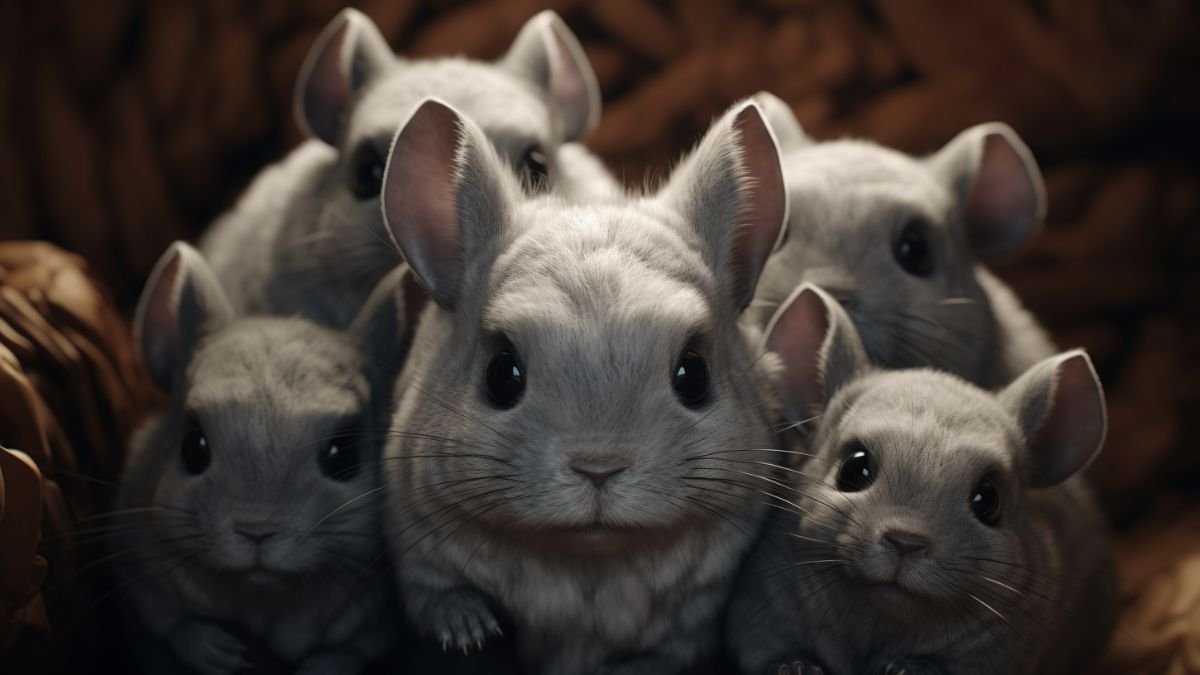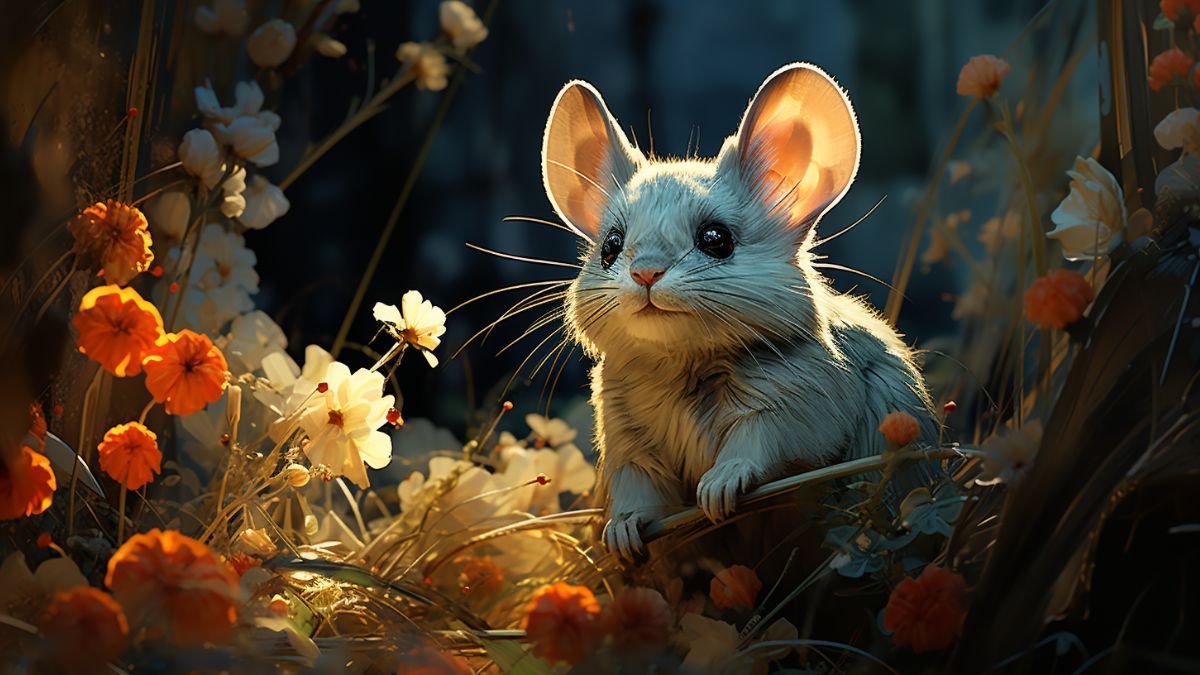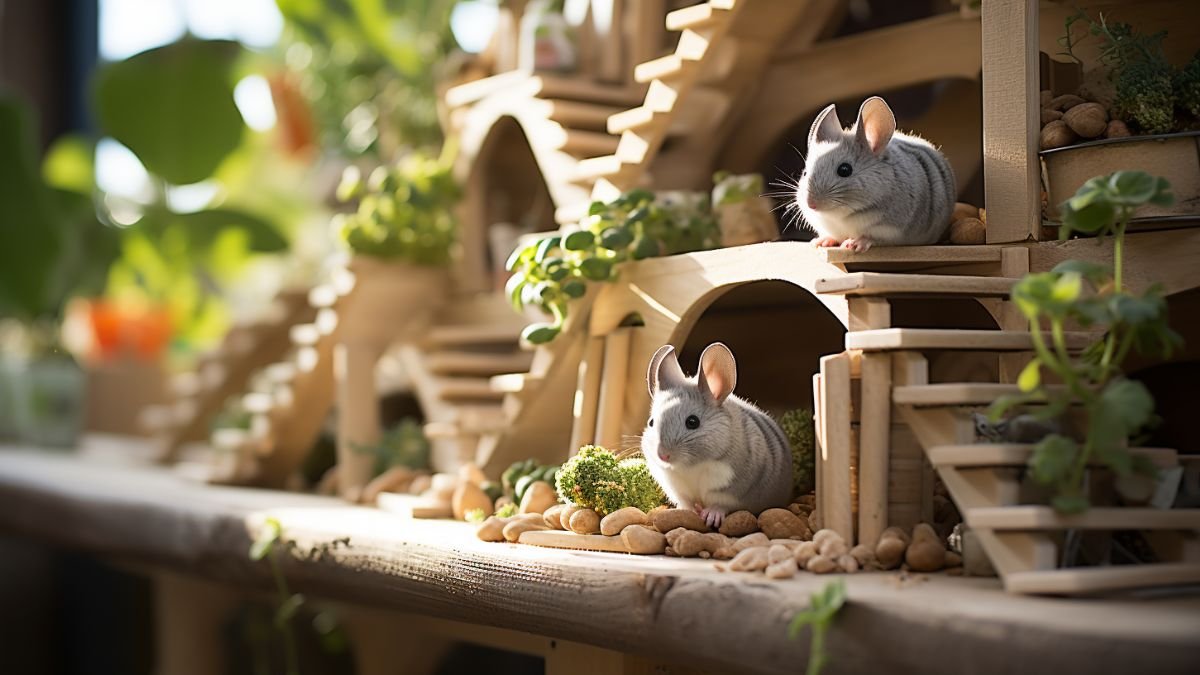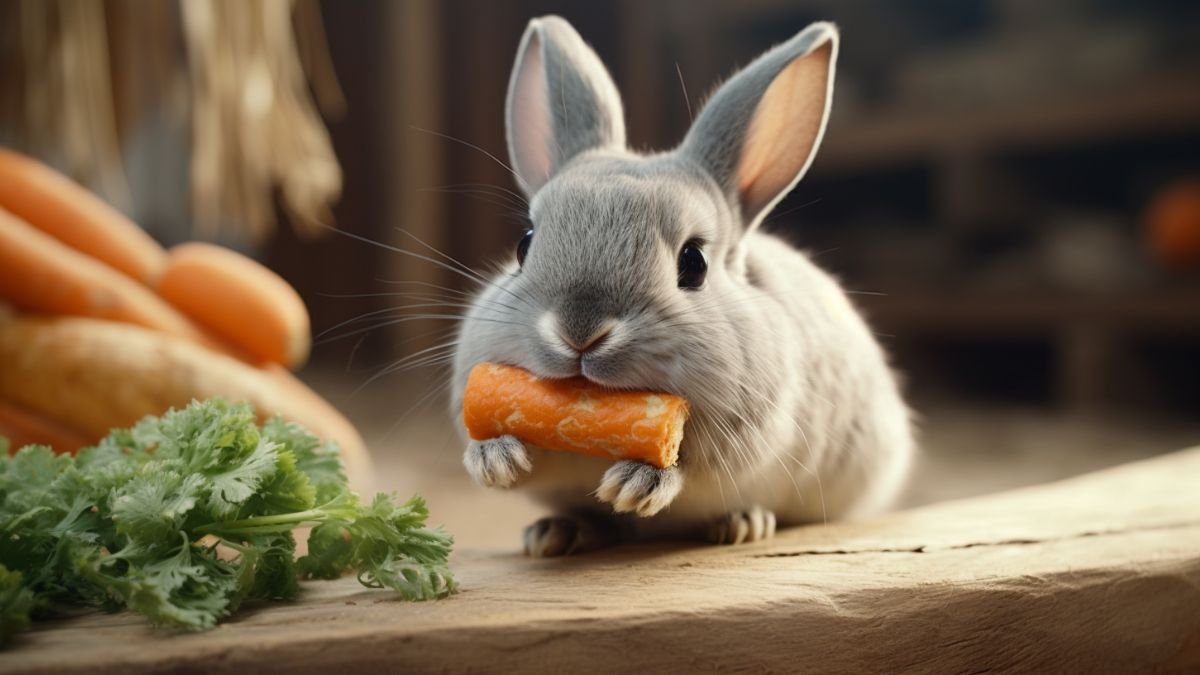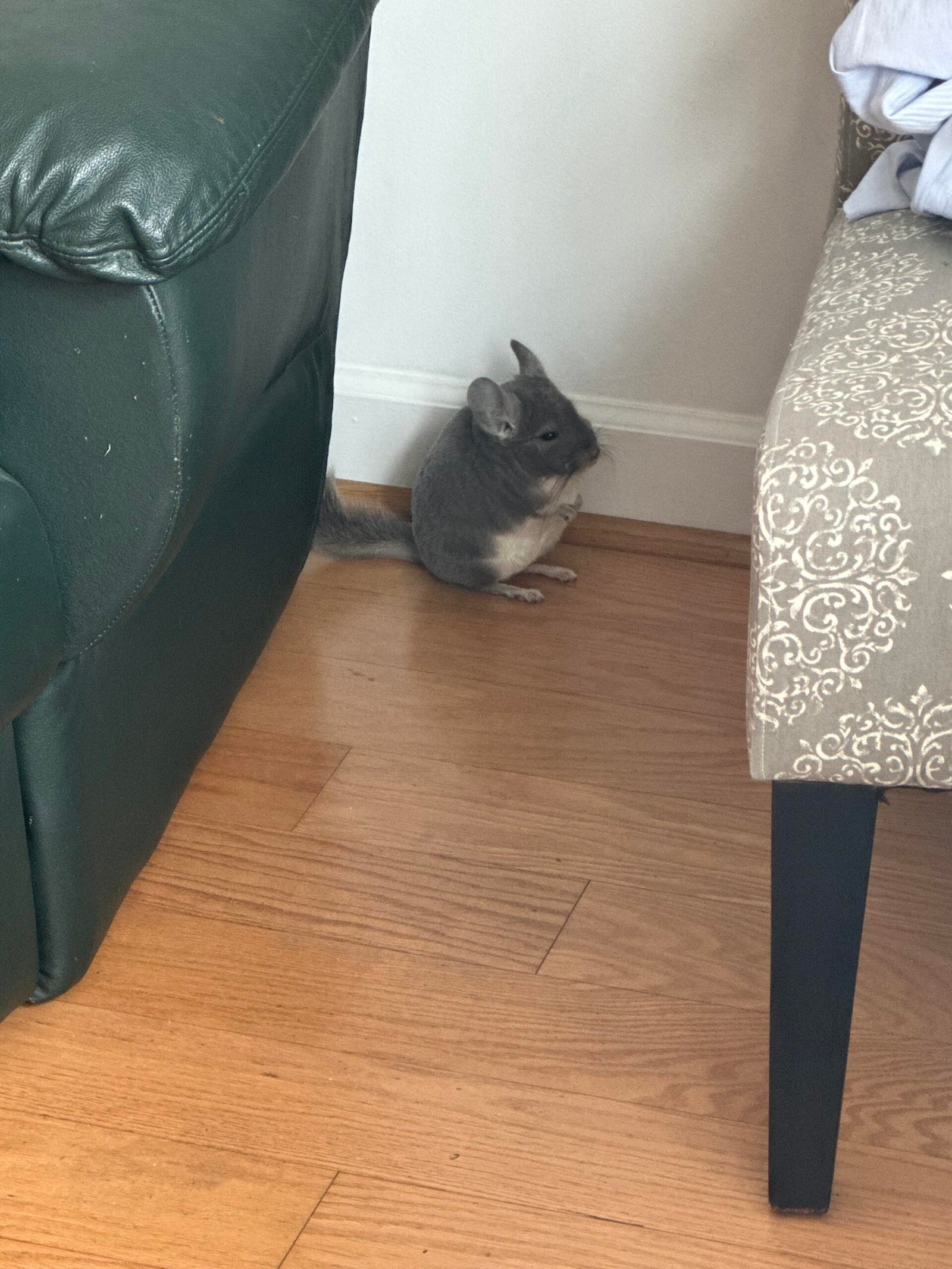If you have a chinchilla, you probably want to give it tasty treats that are also safe. But when it comes to corn, you might be wondering: Can chinchillas eat corn?
You want to make sure your furry friend stays healthy and happy, without risking any harm. You’ll discover the truth about feeding corn to your chinchilla and learn the best choices to keep your pet thriving. Keep reading to find out what you need to know before offering corn as a snack.
Chinchilla Diet Basics
Chinchillas need a special diet to stay healthy and happy. Their digestive system is very sensitive. They require food that is high in fiber and low in fat. A good diet helps keep their teeth strong and their body fit.
Fresh water should always be available. Avoid giving them sugary or fatty treats. Their main food should be hay and chinchilla pellets. These provide the right nutrients and keep their digestion smooth.
Hay: The Core Of Chinchilla Nutrition
Hay is essential for chinchillas. It supports their digestion and dental health. Timothy hay is the best choice. It is low in calcium and rich in fiber. Offer fresh hay daily to keep your chinchilla healthy.
Pellets: Balanced And Nutritious
Pellets provide vitamins and minerals chinchillas need. Choose pellets made specifically for chinchillas. Avoid mixes with seeds or nuts. These can cause health problems. Feed pellets in small portions to prevent overeating.
Fresh Water: Always Available
Water is vital for chinchillas. Use a clean bottle or bowl. Change water daily to keep it fresh. Proper hydration helps digestion and overall health. Never give sugary drinks or juices.
Nutritional Profile Of Corn
Corn is a common food found in many homes. It has a mix of nutrients that animals need. Understanding corn’s nutritional profile helps decide if it suits chinchillas.
Corn contains carbohydrates, protein, fats, vitamins, and minerals. Each of these plays a role in an animal’s diet.
Carbohydrates In Corn
Corn is high in carbohydrates. These provide energy for daily activities. Chinchillas need energy, but too much starch can cause problems.
Protein Content
Corn has some protein, which helps build muscles and repair tissues. However, the protein amount in corn is not very high.
Fats And Oils
Corn contains small amounts of fats. Fats are important for brain health and skin. Too much fat can lead to weight gain.
Vitamins In Corn
Corn offers vitamins like B-complex and vitamin C. These vitamins support metabolism and immune function. Chinchillas need vitamins, but in balanced amounts.
Minerals Present
Corn contains minerals such as magnesium and phosphorus. Minerals help with bone strength and muscle function. The levels in corn are moderate.
Corn And Chinchilla Digestion
Chinchillas have a delicate digestive system. Their stomachs and intestines work best with high-fiber, low-fat foods. Corn is a starchy grain and can be hard for chinchillas to digest properly.
Their natural diet mostly includes hay, grasses, and some seeds. These foods provide the fiber chinchillas need to keep their digestion smooth and healthy.
Corn has more carbohydrates and less fiber. This can cause problems like bloating or upset stomach in chinchillas. Understanding how corn affects their digestion helps keep your pet safe.
Corn’s Nutritional Content
Corn is high in starch and sugars. It has very little fiber compared to hay or grass. Chinchillas need fiber to help food move through their gut.
Too much starch can upset their stomach. It may cause gas and discomfort. This can lead to serious digestive issues if ignored.
Chinchillas’ Digestive Needs
Chinchillas rely on fiber for healthy digestion. Their gut bacteria break down fiber to produce energy. Without enough fiber, their digestion slows down.
Digestive slowdown can cause food to stay too long in their intestines. This might lead to harmful bacteria growth and illness.
Potential Risks Of Feeding Corn
Feeding corn can cause digestive blockages. The starch in corn ferments quickly in their gut. This can lead to gas and bloating.
Some chinchillas may refuse corn due to its taste or texture. Forced feeding can cause stress and harm their digestive system.
Risks Of Feeding Corn To Chinchillas
Corn is a common food, but it can cause problems for chinchillas. Their digestive systems are delicate and different from many other pets. Feeding corn to chinchillas can lead to health risks that owners should know.
Chinchillas need a special diet mostly made of hay and pellets. Corn is high in sugar and starch. These can upset their stomach and cause serious issues.
Digestive Problems
Corn is hard to digest for chinchillas. Their stomachs cannot handle high starch foods well. Eating corn can cause gas, bloating, and diarrhea. These problems can make chinchillas feel very uncomfortable.
Risk Of Obesity
Corn contains a lot of calories and sugar. Too much corn can lead to weight gain. Obesity can cause other health issues like heart problems and joint pain. Chinchillas need a low-fat diet to stay healthy.
Dental Issues
Chinchillas’ teeth grow continuously. They need to chew on fibrous foods to wear down teeth. Corn is soft and sticky, which does not help this process. This can lead to overgrown teeth and pain.
Potential Allergic Reactions
Some chinchillas may be allergic to corn. Signs include itching, swelling, or skin problems. Allergies can also affect their breathing. Avoid feeding corn if any allergy signs appear.
Safe Treats For Chinchillas
Chinchillas need treats that are healthy and gentle on their stomachs. Their digestive systems are delicate. Some foods can cause serious problems.
Choosing the right treats keeps your chinchilla happy and healthy. Treats should be given in small amounts. They support a balanced diet without harming your pet.
Fresh Hay And Grass
Hay is the best treat for chinchillas. It helps with digestion and wears down their teeth. Fresh grass can be given occasionally. Both provide important fiber.
Dried Rose Hips
Rose hips are safe and tasty. They contain vitamins that boost chinchillas’ health. Only offer small pieces. Too much can upset their stomach.
Plain Oats
Plain oats are a good snack. They offer energy and fiber. Avoid flavored or sweetened oats. Keep the amount small to avoid weight gain.
Apple Slices (in Moderation)
Small apple slices can be a treat. Remove seeds before giving. Apples have natural sugar, so limit the amount. Fresh is better than dried.
Signs Of Digestive Trouble
Digestive problems in chinchillas can be serious. Early signs help catch trouble fast. Watch your pet closely after feeding corn or any new food. Understanding these signs protects your chinchilla’s health.
Changes In Appetite
A sudden drop in eating is a clear warning. Chinchillas may refuse food or eat less than usual. Loss of appetite can show stomach pain or discomfort. Monitor feeding habits daily for any changes.
Abnormal Droppings
Healthy chinchillas produce firm, round droppings. Soft, sticky, or very small droppings signal a problem. Diarrhea or lack of droppings may mean digestive upset. Check droppings every day to catch issues early.
Signs Of Pain Or Discomfort
Chinchillas may act restless or quiet when hurting. Grinding teeth loudly can mean stomach pain. They might curl up or avoid moving much. Notice any unusual behaviors that suggest discomfort.
Bloating Or Swelling
A swollen belly can indicate gas or digestive blockages. This is a serious symptom needing quick care. Gently feel your chinchilla’s abdomen for unusual firmness. Immediate attention is important for bloating.
Lethargy And Weakness
Low energy and weakness often follow digestive troubles. A chinchilla that hides or moves less needs checking. These signs show your pet is not feeling well. Act fast to prevent worsening conditions.
Alternatives To Corn
Chinchillas need a balanced diet for good health. Corn is not the best choice for them. It can cause digestive problems and is hard to digest. Many safer and healthier options exist to feed your chinchilla.
These alternatives provide essential nutrients. They keep your pet happy and active. Choosing the right food helps prevent health issues.
Pellets Made For Chinchillas
Special pellets contain all nutrients chinchillas need. They are easy to digest and help maintain good health. Avoid pellets with added seeds or corn.
Hay As A Staple Food
Timothy hay or orchard grass hay is best. Hay supports digestion and dental health. Fresh hay should always be available for your chinchilla.
Fresh Vegetables In Small Amounts
Some veggies like carrots or spinach are good. Offer them in small pieces and limited amounts. Avoid sugary or starchy vegetables to prevent problems.
Safe Treats Like Rose Hips Or Dried Herbs
Rose hips and dried herbs add variety to the diet. They are natural and safe for chinchillas. Use treats sparingly to avoid digestive upset.
Feeding Frequency And Portions
Feeding chinchillas the right amount of food is very important for their health. Corn is not a natural part of their diet, so it should be given carefully. Knowing how often and how much corn to feed your chinchilla helps keep it safe and happy.
Chinchillas have sensitive stomachs. Too much corn can cause problems like diarrhea or weight gain. Small amounts, given rarely, work best. This keeps their diet balanced and healthy.
How Often To Feed Corn To Chinchillas
Corn should be a treat, not a daily food. Feeding corn once or twice a week is enough. This frequency stops any health risks from eating too much corn.
Regular chinchilla food should be the main diet. Treats like corn should stay special and limited.
Recommended Portion Sizes
Only small pieces of corn are safe at a time. A pinch or a few kernels per treat works well. This small amount helps avoid stomach issues.
Always watch how your chinchilla reacts. If it shows signs of discomfort, stop feeding corn.
Signs To Watch After Feeding Corn
Look for changes in eating habits or poop. Loose stools or lack of appetite mean corn may be too much. Stop feeding corn and consult a vet if needed.
Healthy chinchillas stay active and have regular droppings. Keep treats small and rare to support this.
Expert Tips For Chinchilla Care
Taking care of a chinchilla needs attention and knowledge. These small pets have special needs. Understanding their diet, habitat, and health is key. Proper care ensures they live a happy, long life.
Experts suggest focusing on safe foods, clean living spaces, and gentle handling. Chinchillas are sensitive animals. Even small mistakes can cause health problems. Follow simple rules to keep them safe and healthy.
Proper Diet And Food Choices
Chinchillas need a diet high in fiber and low in fat. Fresh hay should be their main food. Avoid sugary or fatty treats. Corn is not suitable because it is too rich and hard to digest. Stick to chinchilla pellets and fresh water.
Creating A Comfortable Living Environment
Chinchillas need a cool, dry space. Temperatures over 75°F can cause heat stress. Use a large cage with shelves for climbing. Clean the cage regularly to prevent odors and illness. Avoid damp or dusty places.
Handling And Social Interaction
Chinchillas are shy but social animals. Handle them gently and speak softly. Give them time to trust you. Play with them daily but avoid loud noises. Social interaction helps reduce stress and boredom.
Frequently Asked Questions
Can Chinchillas Safely Eat Corn?
Chinchillas should not eat corn as it can cause digestive problems and is hard to digest.
What Happens If Chinchillas Eat Corn Kernels?
Corn kernels can cause choking and stomach upset in chinchillas due to their size and texture.
Is Corn Good For Chinchilla’s Diet?
Corn is not suitable for chinchillas because it is high in fat and sugar.
Can Chinchillas Eat Corn On The Cob?
Corn on the cob is unsafe for chinchillas and may cause blockages or choking.
Are There Better Snack Options Than Corn For Chinchillas?
Yes, chinchillas prefer hay, dried rose hips, and small amounts of fresh veggies.
How Often Should Chinchillas Eat Treats Like Corn?
Treats like corn should never be given to chinchillas to avoid health risks.
Can Corn Cause Diarrhea In Chinchillas?
Yes, corn can cause diarrhea as it disrupts their sensitive digestive systems.
What Should I Feed Instead Of Corn To Chinchillas?
Feed chinchillas high-quality hay, pellets, and safe fresh herbs or fruits in small amounts.
Conclusion
Chinchillas should not eat corn due to health risks. Corn is hard to digest and may cause stomach problems. Their diet needs to focus on hay, pellets, and fresh water. Treats must be safe and given in small amounts. Always choose foods that support their natural needs.
Keeping chinchillas healthy means avoiding harmful snacks like corn. Remember, good care helps your pet live longer and happier.
